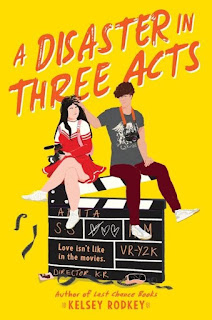Symphony for the City of the Dead
By: M.T.Anderson
 Location: 920 AND
Location: 920 AND
Genre: Historical Non Fiction for Young Adults
A 2016 YALSA Award for Excellence in Nonfiction for Young Adults Finalist
National Book Award winner M. T. Anderson delivers a brilliant and riveting account of the Siege of Leningrad and the role played by Russian composer Shostakovich and his Leningrad Symphony.
In September 1941, Adolf Hitler’s Wehrmacht surrounded Leningrad in what was to become one of the longest and most destructive sieges in Western history—almost three years of bombardment and starvation that culminated in the harsh winter of 1943–1944. More than a million citizens perished. Survivors recall corpses littering the frozen streets, their relatives having neither the means nor the strength to bury them. Residents burned books, furniture, and floorboards to keep warm; they ate family pets and—eventually—one another to stay alive. Trapped between the Nazi invading force and the Soviet government itself was composer Dmitri Shostakovich, who would write a symphony that roused, rallied, eulogized, and commemorated his fellow citizens—the Leningrad Symphony, which came to occupy a surprising place of prominence in the eventual Allied victory.
This is the true story of a city under siege: the triumph of bravery and defiance in the face of terrifying odds. It is also a look at the power—and layered meaning—of music in beleaguered lives. Symphony for the City of the Dead is a masterwork thrillingly told and impeccably researched by National Book Award–winning author M. T. Anderson.
"I'm still reeling from this book, and think I will be for quite a while. It was the kind of book that I had to put down often, just to be able to process the horror that the Russian people experienced. There's all kinds of horror in here: at the hands of the state, at the hands of the Germans, at the hands of people you thought were your friends. Anderson does an amazing job of bringing the realities of what it must have been like to live through Stalin's purges and the siege of Leningrad to life. It's incredibly hard to read, but also important to understand this time of history. "- Kristen
 Location: 920 AND
Location: 920 ANDGenre: Historical Non Fiction for Young Adults
A 2016 YALSA Award for Excellence in Nonfiction for Young Adults Finalist
National Book Award winner M. T. Anderson delivers a brilliant and riveting account of the Siege of Leningrad and the role played by Russian composer Shostakovich and his Leningrad Symphony.
“Some love is so powerful after all, that it must
always include sadness, because encrypted within it is the knowledge
that someday it will come to an end.”
In September 1941, Adolf Hitler’s Wehrmacht surrounded Leningrad in what was to become one of the longest and most destructive sieges in Western history—almost three years of bombardment and starvation that culminated in the harsh winter of 1943–1944. More than a million citizens perished. Survivors recall corpses littering the frozen streets, their relatives having neither the means nor the strength to bury them. Residents burned books, furniture, and floorboards to keep warm; they ate family pets and—eventually—one another to stay alive. Trapped between the Nazi invading force and the Soviet government itself was composer Dmitri Shostakovich, who would write a symphony that roused, rallied, eulogized, and commemorated his fellow citizens—the Leningrad Symphony, which came to occupy a surprising place of prominence in the eventual Allied victory.
This is the true story of a city under siege: the triumph of bravery and defiance in the face of terrifying odds. It is also a look at the power—and layered meaning—of music in beleaguered lives. Symphony for the City of the Dead is a masterwork thrillingly told and impeccably researched by National Book Award–winning author M. T. Anderson.
"I'm still reeling from this book, and think I will be for quite a while. It was the kind of book that I had to put down often, just to be able to process the horror that the Russian people experienced. There's all kinds of horror in here: at the hands of the state, at the hands of the Germans, at the hands of people you thought were your friends. Anderson does an amazing job of bringing the realities of what it must have been like to live through Stalin's purges and the siege of Leningrad to life. It's incredibly hard to read, but also important to understand this time of history. "- Kristen


Comments
Post a Comment